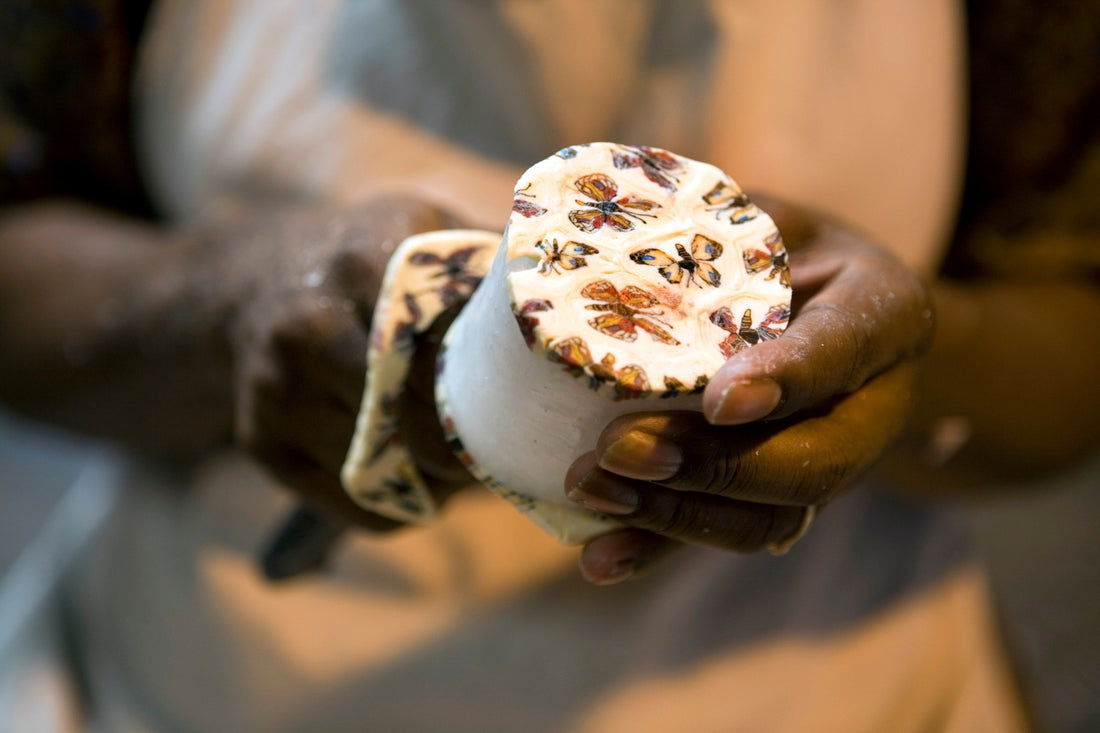Our Swazi Candles are handmade in Eswatini using the age-old technique of Milleflore.
The Milleflore, or ‘thousand flowers’ technique first surfaced in ancient Alexandria, but was perfected in the great glassmaking cities of Murano and Venice. On the African Coast, beads from Venice were used as a form of currency to barter for gold and ivory. They proved to be popular, so North and West Africans came to make their own variations, and African trade beads were born.
The art of Milleflore continues today in Swazi Candles. However, the candle makers of Eswatini use a special hard wax instead of glass to create their colourful designs.
Sheets of different coloured hard wax are poured and rolled into patterns, then stretched and re-rolled many times until the desired patterns are acquired. The thin sheets of wax are then cut into veneers and are skillfully applied by hand over a core of white wax and handmade into desired shapes. The veneer hardly melts when the candle is lit, resulting in a rich, romantic glow of the illuminated exterior as the candle burns deeper into the container lighting up the casing.



Each candle is carefully and individually created by hand and the candles are environmentally friendly. Up to 85% of raw materials are recycled.No two candles are the same.
The Swazi Candles workshop is a member of the World Fair Trade Organization. The 200+ employees are included in all decision-making processes and provided with health care, insurance, food and travel allowances. Swazi Candles believe that cultivating an enjoyable and creative working environment is beneficial to all. They are committed to sharing profits with workers and paying a living wage to all stakeholders. An in-house counsellor is available to assist people with on-going social and health issues, such as domestic violence and HIV/Aids.
Explore our Swazi Candles here.




